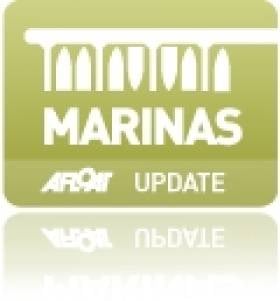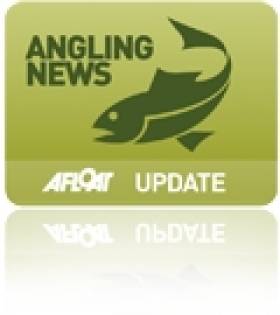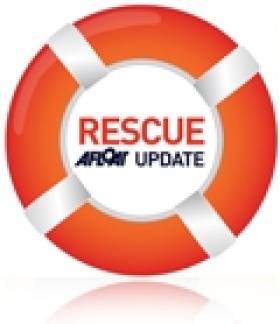Displaying items by tag: Lough Ramor
New Marina On Lough Ramor Opens This Saturday
#IrishMarinas - The official opening of the new Ramor Watersports Club Marina will take place this Saturday 30 November.
Cavan county manager Jack Keys will handle the official duties from 2pm at the new marina facility on the shores of Lough Ramor, in front of the Lakeside Manor Hotel in Virginia.
The €300,000 marina development was completed late last month, according to the Anglo-Celt, and features 30 secure berths - eight of which are open to visiting tourists.
In addition the marina will house two 16ft Wayfarer salmon boats that will be used by club members, and for sail training classes on the lough next summer.
And it's expected that the new marina will provide a gateway to the lough for a broad range of watersports activity beyond boating from kitesurfing to diving to angling.
Made possible through leader funding of €200,000 and sponsorship, the marina's costs are not yet fully covered and the Ramor Watersports Club (RWC) still needs to meet the difference of some €60,000 over the next five years.
To this end it plans a series of fundraising events that will be advertised via the club's Facebook page and local media.
"We really look forward to exciting times ahead, when the current Virginia Town Harbour Project is restored, to encourage boat traffic all around the lake," said RWC chair John Wilson.
Young Dublin Angler Catches Record Trout At Lough Ramor
#Angling - A new record has been set by the Dublin Angling Initiative with 16-year-old Eric Cahill catching a fish of a lifetime - a 12lb ferox trout from Lough Ramor in Virginia, Co Cavan.
This is the biggest fish ever caught by a youngster out angling with the Dublin Angling Initiative (DAI).
The fishing trip for a group of 10 young anglers was organised for Mulhuddart Foróige Fishing to Lough Ramor by Des Chew of the DAI in March.
Following an introduction by Des on the setting up of rods, rigs and bait presentation, the youngsters were soon fishing for roach, hybrids and perch with others choosing to fish for pike.
Great fun was being had by the group who were catching and releasing lots of coarse fish.
Meanwhile, Eric patiently waited for a pike to take his smelt deadbait. He signalled for assistance when his rod tip nodded indicating a take. Under the guidance of Des Chew and Chris McGregor, he was instructed to knock his bale arm over so this cagey fish would feel no resistance.
Suddenly there was a short run and Eric struck. It was obvious he had a big fish on. When the fish drew close, the golden-spotted body revealed that Eric was now playing a fish of a lifetime and maybe the first specimen caught by a DAI angler.
The fish was landed amid great excitement by the kids, youth workers and a crowd of local anglers alike.
Before release it was weighed on certified scales, and laid out and measured on an Inland Fisheries Ireland measuring mat. It reached a length of over 80cm and weighed in at over 12 lbs.
There was jubilation among Eric and his peers as Des announced that he had just caught the first specimen from over 10,000 teenagers who have participated in DAI courses over the last 15 years.
If this fish is ratified by the Irish Specimen Fish Committee it will also be the first specimen recorded from Lough Ramor.
Eric Cahill has been a member of Mulhuddart Foróige Fishing in west Dublin since he has been 10 years of age. During that time the DAI says he has always shown unique ability to listen and learn angling skills from his tutors.
He has attended numerous fishing courses in game, coarse and sea fishing run by the DAI with his Foróige youth officers, Bernie Moloney and Siobhan Hennessy.
According to Inland Fisheries Ireland, this was truly a very proud moment for Eric and the Dublin Angling Initiative, whose members now have a new record to beat!
Lifejacket Saves Boy in Lough Ramor
A lifejacket was key to saving a youg boy's life when he was thrown from his boat in Lough Ramor on Sunday afternoon.
The 14-year-old was the sole occupant of a RIB on the Co Cavan lough, and had failed to secure the emergency engine stop cord to his body before he went overboard.
But his lifejacket kept him afloat while a passer-by raised the alarm.
SAR Ireland reports that Coast Guard helicopter Rescue 116 was dispatched from Dublin in response, but was stood down when the boat owner, who has been contacted by gardaí, was able to rescue the youngster.































































